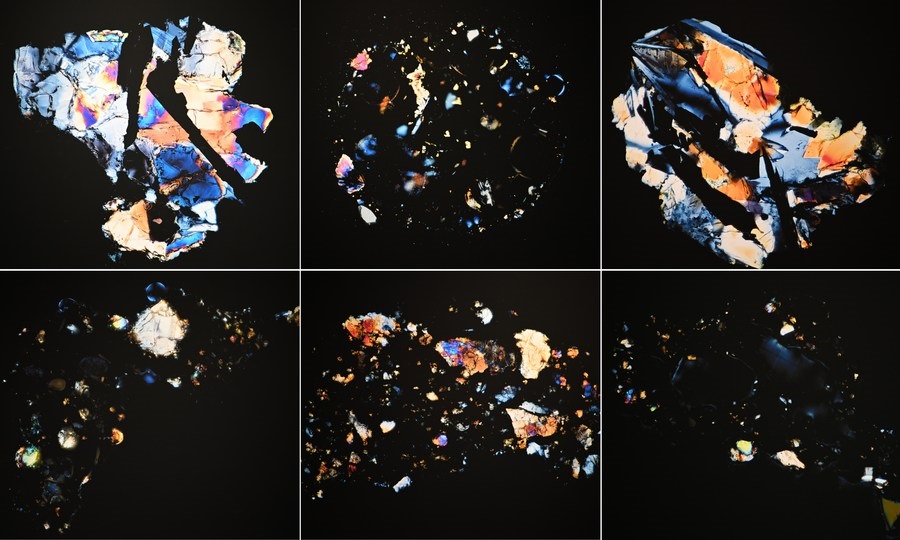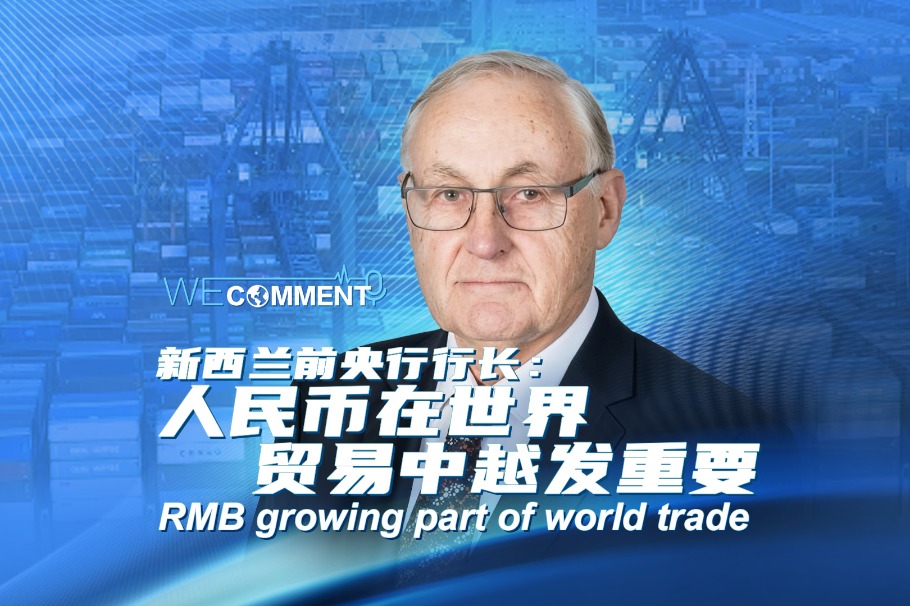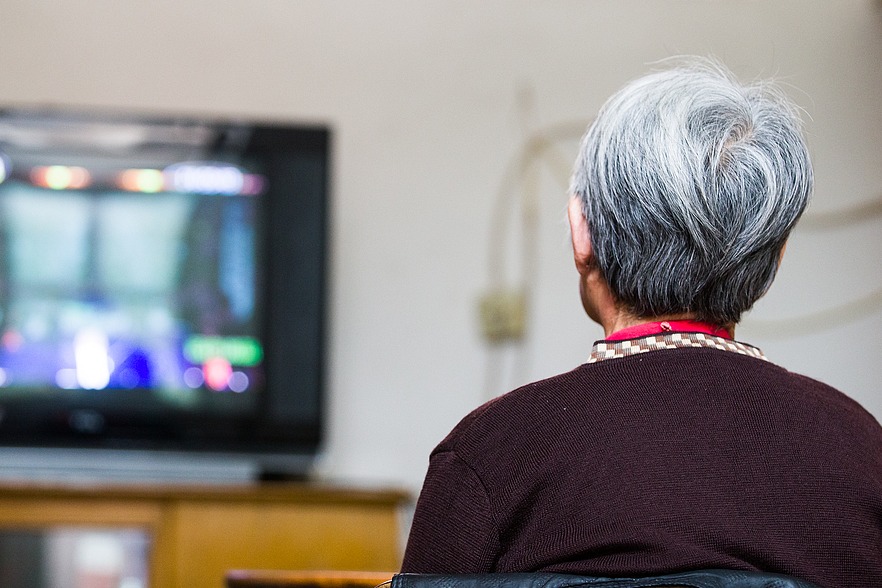Nation open to sharing lunar samples in fair, equal manner
By Zhao Lei | China Daily | Updated: 2023-12-22 09:30

China welcomes researchers from the United States wishing to study lunar samples brought back by a Chinese robotic probe, but urges "farsighted people in the US" to work for the abolition of the infamous Wolf Amendment, said a spokesman for the China National Space Administration.
In an exclusive interview with China Daily on Thursday in Beijing, Xu Hongliang, the spokesman, said: "China has never made any law, regulation or clause that prohibits cooperation with the US on space exploration. We place great attention on international space cooperation and we are always open to exchanges and communication with the US in this regard."
Xu said that China "welcomes people of the international science community, including those from the US, who have applied, or intend to apply", for the use of its lunar samples in accordance with its application rules and "through appropriate means".
He emphasized that the Chinese government carries out space programs to explore and develop outer space in a peaceful manner, and engages in international communication and cooperation based on principles of equal treatment, mutual benefit, peaceful purposes and shared development.
Till now, China has established communication and cooperation on space programs with more than 50 nations and international organizations, he said.
The Wolf Amendment, which was first added to NASA's annual appropriations bill by former US representative Frank Wolf in 2011, has been included in the agency's funding bill every year and has greatly affected bilateral ties between NASA and Chinese space authorities.
Xu said it is truly confusing why at a time when the US is seeking to apply for China's lunar samples, "some people on the US side continue to show their fervid fondness for the Wolf Amendment".
"I don't know whether the US side is playing on words or (playing) other little tricks," he said. The amendment has severed almost all exchanges and lines of communication between Chinese and US space communities since 2011, he added.
In 2015, the US proposed to China to jointly run a Civil Space Dialogue, which China agreed to. The first dialogue was held in Beijing in 2015, the second in Washington in 2016, and the third again in Beijing in 2017. The fourth dialogue, which the US was supposed to host in 2018, is long overdue, Xu said.
China has done a lot of work to make the fourth dialogue happen, but all its efforts have been in vain, he said. "This clearly shows that China is a genuine supporter of bilateral space exchanges and communication, and the reason why bilateral cooperation can't occur lies in the plain fact that the US government continues to adopt Cold War mentality in handling space issues between the two countries."
Xu said that many of his "peers in the international space circle" have called on the US to relax or repeal the amendment, because they deem it as a stumbling block and only a tool for political propaganda.
"We also urge far-sighted people in the US to consider kicking away such an obstacle," he said, adding that as far as he knows, there have been strong appeals in the US for abolishing the Wolf Amendment and resuming cooperation with China in lunar and deep-space explorations.
The spokesman made the remarks in the wake of recent statements issued by NASA and US Ambassador to China Nicholas Burns.
In a Nov 29 statement, NASA said it has certified its intent to the US Congress to "allow NASA-funded researchers to apply to the China National Space Administration for access to lunar samples returned to Earth on the Chang'e 5 mission".
The US space agency said that applying for the Chang'e 5 samples will ensure that US researchers have the same research opportunities as scientists around the world.
However, NASA made it clear that this allowance applies specifically to Chang'e 5 mission samples and "the normal prohibition on bilateral activity with (the) PRC (People's Republic of China) on NASA-funded projects remains in place."
Meanwhile, when attending a lecture hosted by the Council on Foreign Relations, a think tank in Washington, on Dec 12, Burns responded to a request for his perspective on China-US space collaboration by saying that he does not believe "the Chinese have shown much of an interest in working with the US" in space.
Yang Yuguang, a senior space industry observer and vice-chair of the International Astronautical Federation's Space Transportation Committee, said there are many distinguished figures in the US space community such as Buzz Aldrin, the second man to walk on the moon during the Apollo 11 mission, who have been calling for the rescission of the Wolf Amendment.
"Some people in the US are always terrified by their own imagination that China wants to contest for space supremacy with the US, but the fact is that we never want to engage in a space race," Yang said.
"When the US wishes to cooperate with us, it says such cooperation poses no threat to its national security, but when it doesn't want to work with us, bilateral ties become 'toxic and dangerous' to its national security. This is unfair," he said.
As of press time on Thursday, an email sent to NASA by China Daily, requesting a comment on the matter, had not been answered.
Professor Martin Sweeting, a fellow of the Royal Society of the United Kingdom and a distinguished professor of space engineering at the University of Surrey, said it is very good news that as an exception to the Wolf Amendment, the US Congress has granted permission to NASA-funded researchers to apply for access to Chang'e 5 lunar samples.
"International collaboration on scientific space exploration is of great mutual benefit and increases the contribution to global knowledge," he wrote in an email to China Daily on Thursday. "This very welcome decision hopefully paves the way for further possible bilateral scientific collaboration (between China and the US) relating to the moon and on the future analysis of samples collected from Mars."
Professor Clive Neal, a leading expert on the moon at the University of Notre Dame in the US state of Indiana, told the academic portal Science this month that US researchers started lobbying NASA officials to explore the possibility of gaining access to the samples soon after the Chang'e 5 capsule returned to Earth.
He said the Chang'e 5 lunar samples have proved to be much younger, dated at 2 billion years old, making them unique among lunar materials returned to Earth.
As one of the world's most notable space activities in 2020, the Chang'e 5 robotic mission was launched in November that year. It was China's first lunar sample-return mission and one of its most sophisticated and challenging space endeavors.
The landmark mission returned 1,731 grams of rocks and soil to Earth on Dec 17, 2020, presenting the first lunar substances obtained since the Apollo era. Recognizing the accomplishment, the International Academy of Astronautics gave its highest team award for 2023 to the Chang'e 5 project group, explaining that the Chinese team made outstanding contributions to mankind's lunar and deep-space exploration missions.
So far, lunar samples from the Chang'e 5 mission have enabled Chinese researchers to make a number of academic strides, including the discovery of the sixth new lunar mineral, named Changesite-(Y).
Changesite-(Y), which falls in the category of lunar merrillite, has become the first lunar mineral discovered and identified by Chinese scientists, making China the third nation in the world, after the US and Russia, to have achieved such a feat.
Cai Jinman contributed to this story.
zhaolei@chinadaily.com.cn
























